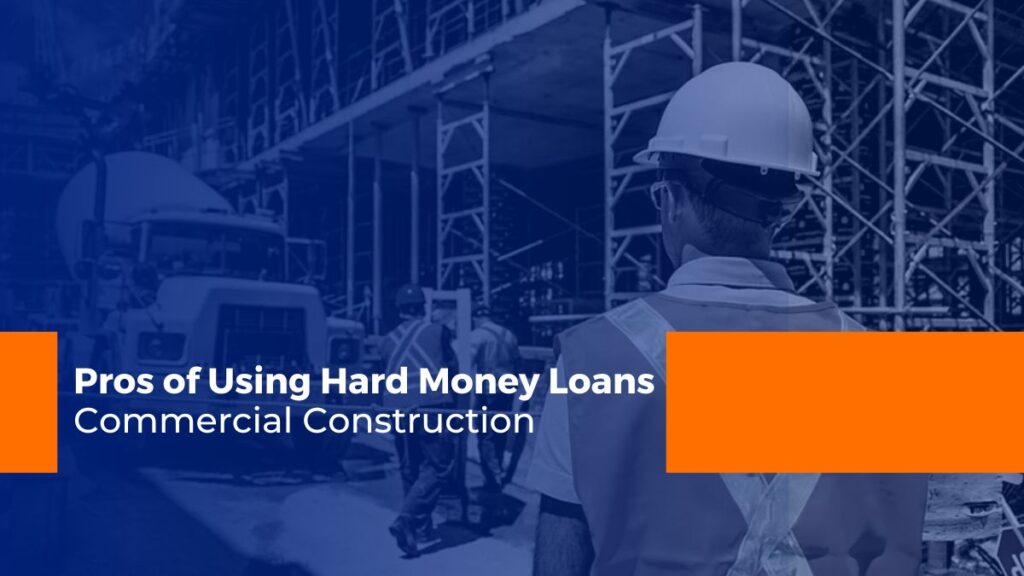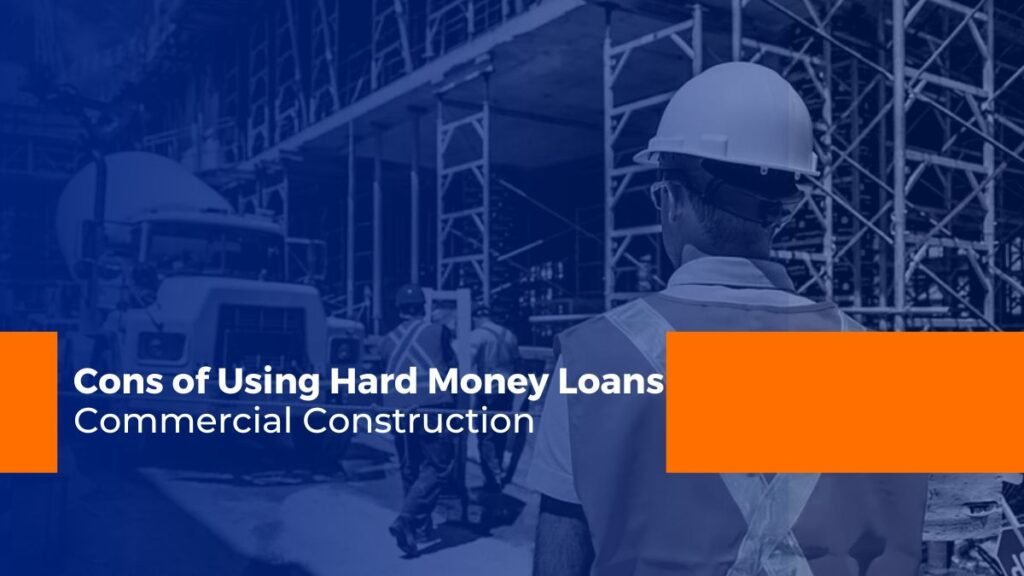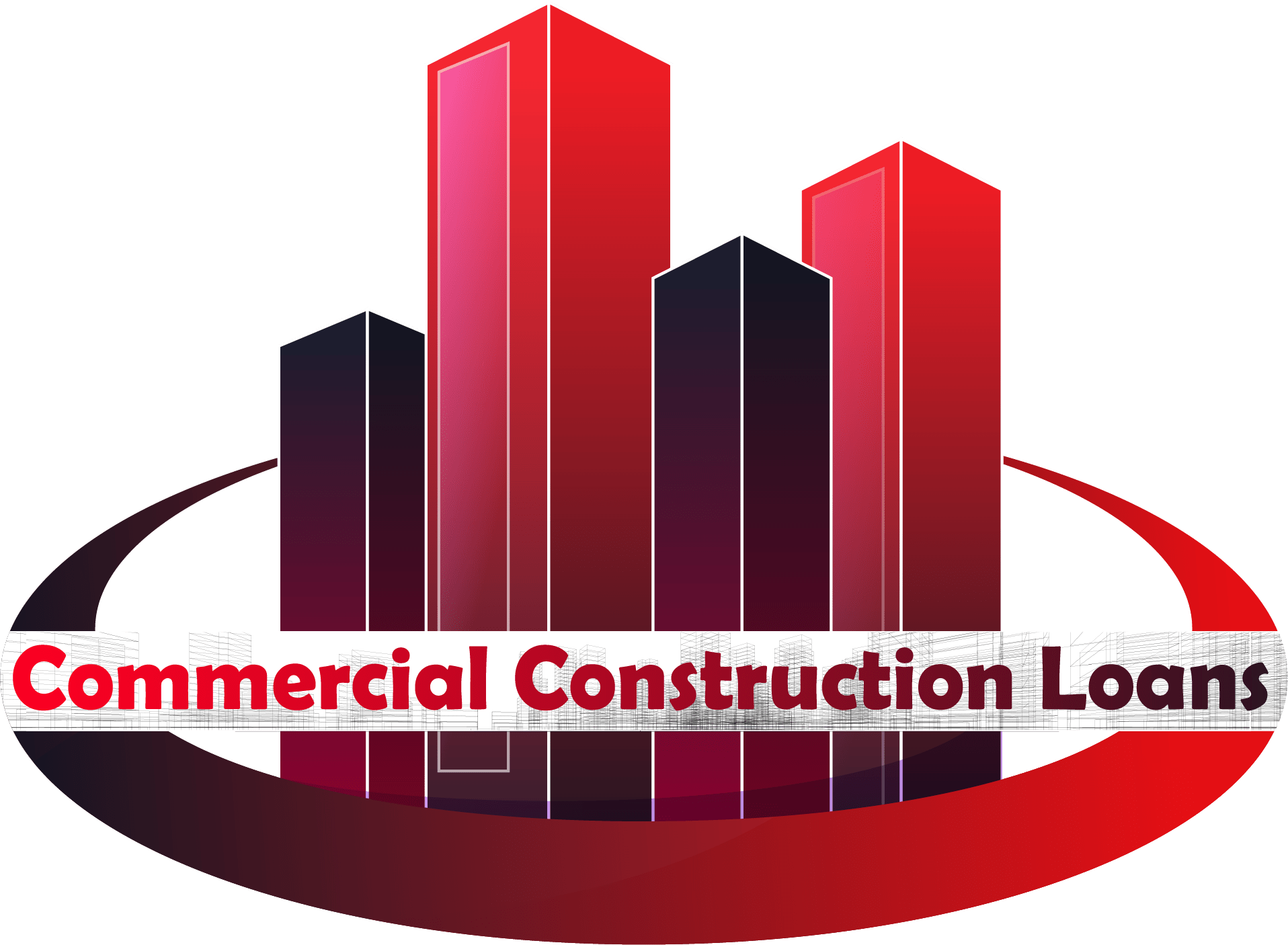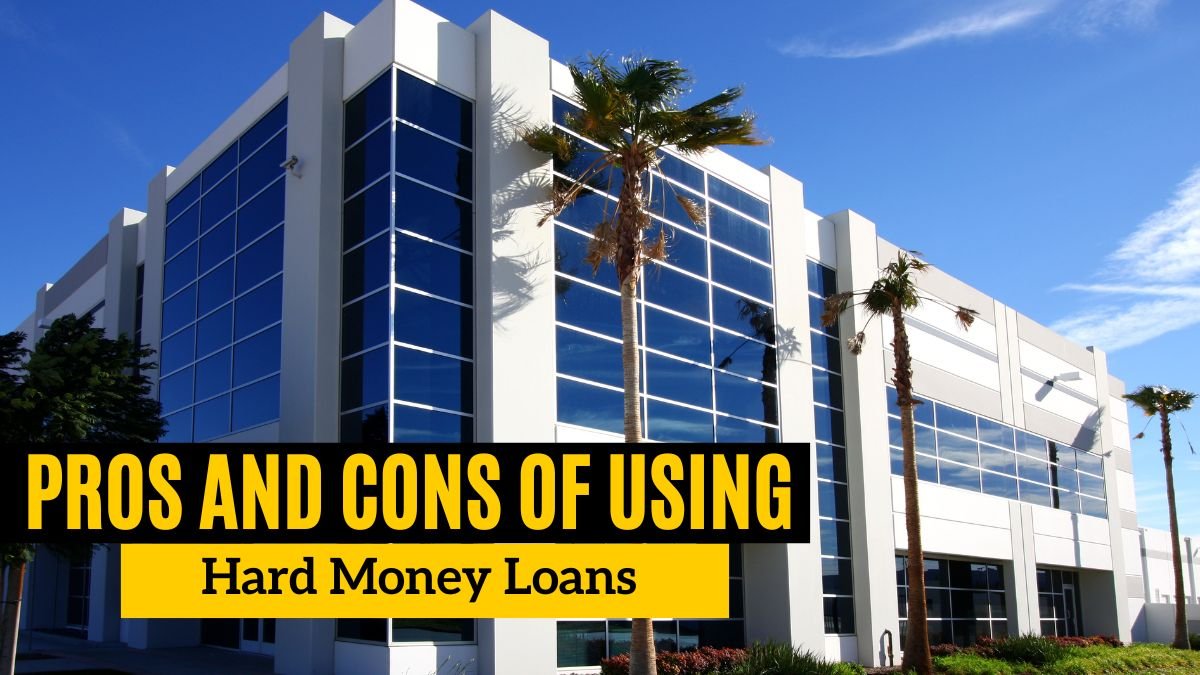Businesses can get commercial construction loans to help construct buildings and other necessary structures. However, people may need help getting these loans from standard lenders. Credit score standards that are too high, long application processes, and a focus on the borrower’s financial history can make it hard for some projects to get approved.
In this case, hard money loans are a different way to get money. As collateral, hard money lenders mostly look at the property’s value. This makes the acceptance process faster and more flexible.
Traditional commercial construction loans are more stable, but hard money loans can be better for some commercial construction projects because they are faster, more flexible, and focused on the project. However, people who want to borrow money should be aware of the possible downsides, such as longer terms and higher interest rates.
Pros of Using Hard Money Loans for Commercial Construction

Fast Closing Times
Lightning closing times are among the best things about hard money loans for business construction. Hard money lenders often accept and fund loans within days, sometimes weeks. This is faster than traditional lenders, who can take weeks or months to process applications. This quick access to cash is beneficial for projects that must be finished quickly because delays can cost a lot of money.
Scenarios where speed is crucial
- Auctions: You can move quickly and make a firm offer without worrying about money if you have a secured hard money loan during a competitive auction.
- Securing Permits: Some permits or zoning approvals may have strict due dates. You can be sure you have the money to start building before the permit window closes with a hard money loan.
Flexible Qualification Requirements
Traditional lenders put a lot of weight on a borrower’s credit history and financial health when deciding whether to give them a commercial construction loan. On the other hand, hard money lenders focus more on the project itself. Their main worry is whether or not your construction project will work and how much the property that will be used as collateral for the loan is worth. In other words, they might be kinder to:
- Lower credit scores: If the project has a good chance of succeeding, a credit mistake in the past might not automatically keep you from getting a hard money loan.
- Limited experience: New developers might need help to get loans from standard lenders if this is their first time building several businesses. Hard money lenders may be more ready to look at the project’s strengths and your overall plan to make it work.
Hard money loans can be used to buy fixer-upper properties.
Business properties that could make money could be in better shape or need significant repairs before reaching their full potential. However, getting standard financing for these “fixer-upper” homes can be challenging. Conventional lenders usually only want to fund projects on homes in great shape.
This is where hard money loans come in very handy. Hard money lenders help investors who want to bring old business properties back to life by focusing on the property’s after-repair value (ARV). This is the value the property will hold after the repairs are finished. You can use this to pay for the house’s buying price and repairs, which lets you make the most money from the property.
Cons of Using Hard Money Loans for Commercial Construction

High Interest Rates
Hard money loans are appealing because they are quick and flexible. Still, borrowers should know they have very high interest rates compared to regular construction loans. Rates can be anywhere from 10% to 15% or even higher, depending on the lender and the job details. The high cost of getting money can significantly affect your project’s profitability, so it’s essential to plan carefully and make accurate predictions.
Additional Consideration: Prepayment Penalties
Some hard money lenders may charge you a fee if you repay the loan early. This fee is what the lender gets for not getting the interest they were expecting. Add this possible cost to your project’s general budget.
Shorter Loan Terms
One big problem with hard money loans is that they have shorter terms for paying them back. The terms of these loans are usually between 6 and 24 months, which puts a lot of pressure on people to finish their construction projects quickly and satisfactorily. This can be stressful, especially for big jobs that must be put on hold because of bad weather, problems with permits, or a lack of materials.
Pressure to Refinance Quickly
Due to the short loan time, you need a clear plan for how to get out of the loan. You’ll need a plan for how to pay off the hard money loan with a more standard long-term loan once the construction is done. This step of borrowing makes things even more complicated. It increases the chance of not being able to get an excellent long-term loan if the market changes or the costs of your project go up more than expected.
Strict Collateral Requirements
Hard money lenders depend more on the property as collateral than traditional lenders. Traditional lenders look at the borrower’s overall financial health. If you don’t repay the loan, the lender can take the property to get their money back. This increases the risk for borrowers because even a slight problem during construction could cause them to lose the whole property.
Potential for Foreclosure
If you don’t make your payments on time, hard money lenders are known to move quickly on loans. Since the property secures the loan, they can soon start the default process to recover their money. This shows how important it is to have a sound financial plan and a reasonable project timeline to make sure you can pay back your debts.
Hard Money Loans vs. Traditional Loans for Commercial Construction
| Feature | Hard Money Loans | Traditional Loans |
| Interest Rates | High (10-18% or more) | Lower (typically below 10%) |
| Loan Terms | Short (6-24 months) | Longer (1-20 years) |
| Qualification Requirements | Flexible (focuses on project and asset value) | Strict (strong credit score, financial history) |
| Collateral Focus | Property itself | Borrower’s overall financial health and project |
| Approval Speed | Fast (days to weeks) | Slower (weeks to months) |
| Exit Strategy | Refinance needed after short-term | Long-term financing |
| Suitability for | Time-sensitive projects, fixer-uppers, and borrowers with lower credit scores | Stable, well-established projects with solid financials |
When Might a Hard Money Loan Be Right for Your Commercial Construction Project?
Hard money loans can be valuable for commercial construction projects in specific situations. Here are some critical scenarios where their advantages shine:
- Time-Sensitive Deals: In fast-paced situations like auctions or securing permits with strict deadlines, the rapid closing times of hard money loans allow you to seize opportunities without delays for traditional financing.
- Fixer-Upper Properties: For distressed properties with development potential, hard money bridges the gap by financing the purchase and renovation costs based on the property’s after-repair value (ARV).
- Experience or Credit Shortcomings: If you’re a new developer with limited experience or have credit blemishes that might hinder traditional loan approval, hard money lenders focus more on the project’s viability and the collateral property itself.
A strong exit plan is essential for success with a hard money loan. Because the loan terms are short, you need a plan to pay it back quickly. Once construction is done, this is usually done by refinancing with a standard long-term loan. To ensure your project makes money, consider the higher interest rates and possible early payment fines of hard money loans.
In conclusion
Commercial projects that need to be done quickly and flexibly can get hard money loans. They advertise quick approvals, a focus on projects, and the ability to fund homes that need work. But buyers need to be aware of the big problems: much higher interest rates, shorter loan terms, strict collateral requirements, and the risk of losing their home quickly if they don’t pay.
Before getting a hard money loan, consider your project needs and the risks you will face. The high cost of getting money can significantly affect making money. Talk to a financial advisor about your financing choices and make a reasonable budget for your commercial construction project. This will help you decide if a hard money loan is suitable.
FAQs
Are hard money loans always the most expensive option?
Hard money loans typically come with significantly higher interest rates than traditional loans. However, their faster approval process and flexibility can be valuable for specific projects.
Can I use a hard money loan to finance the entire project?
It depends on the lender and your project specifics. Some lenders may offer financing for a significant portion of the project. In contrast, others might focus on a specific stage, such as acquisition or initial construction costs.
What happens if I can’t repay the hard money loan?
Since the property is the primary collateral, the lender can initiate foreclosure proceedings to recoup their losses if you default on the loan. This highlights the importance of having a solid financial plan and a realistic project timeline.
Are there any alternatives to hard money loans?
Absolutely, Traditional commercial construction loans offer lower interest rates and longer terms but require stricter qualifications. Depending on your project and financial situation, options like private lenders or joint ventures might be worth exploring.
Should I consult a professional before taking out a hard money loan?
Absolutely, Consulting with a qualified commercial loan advisor is highly recommended. They can help you assess your project’s needs, explore all financing options, and choose the loan that best suits your situation.


Comments are closed